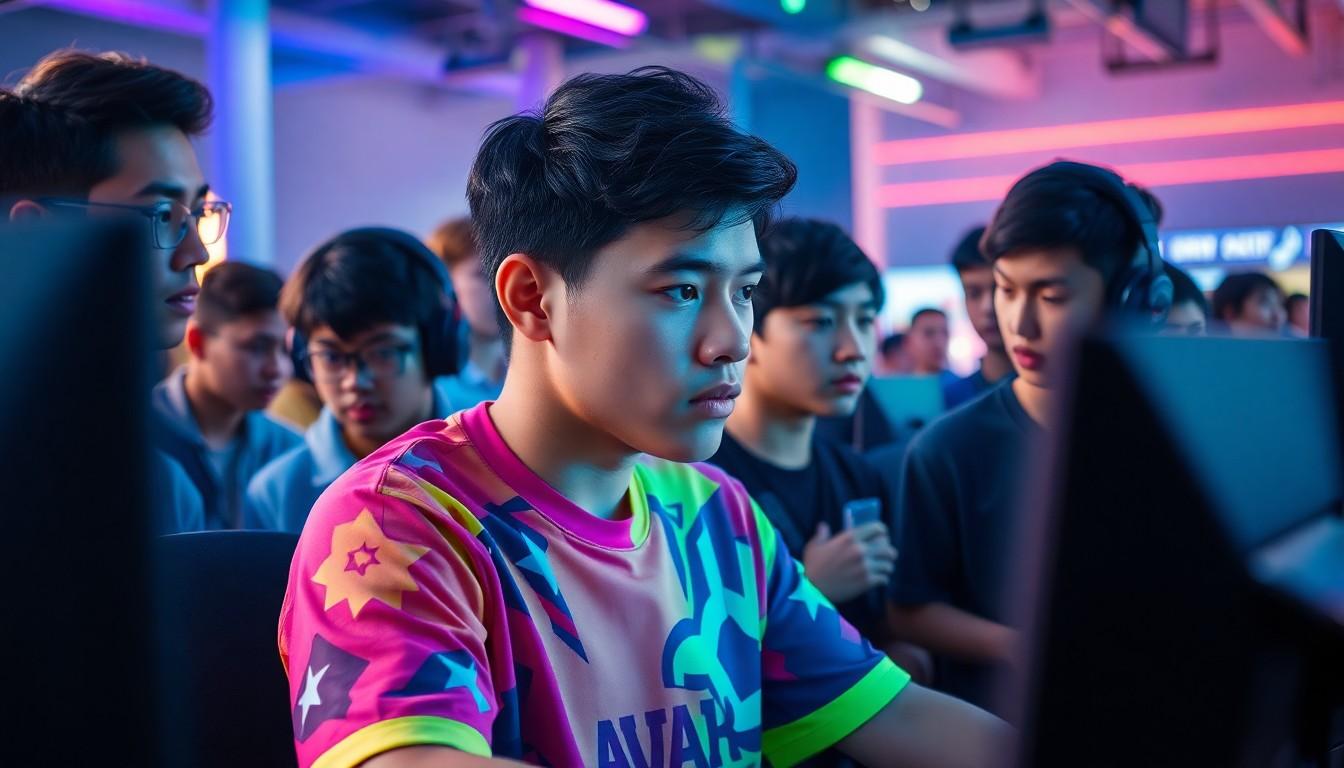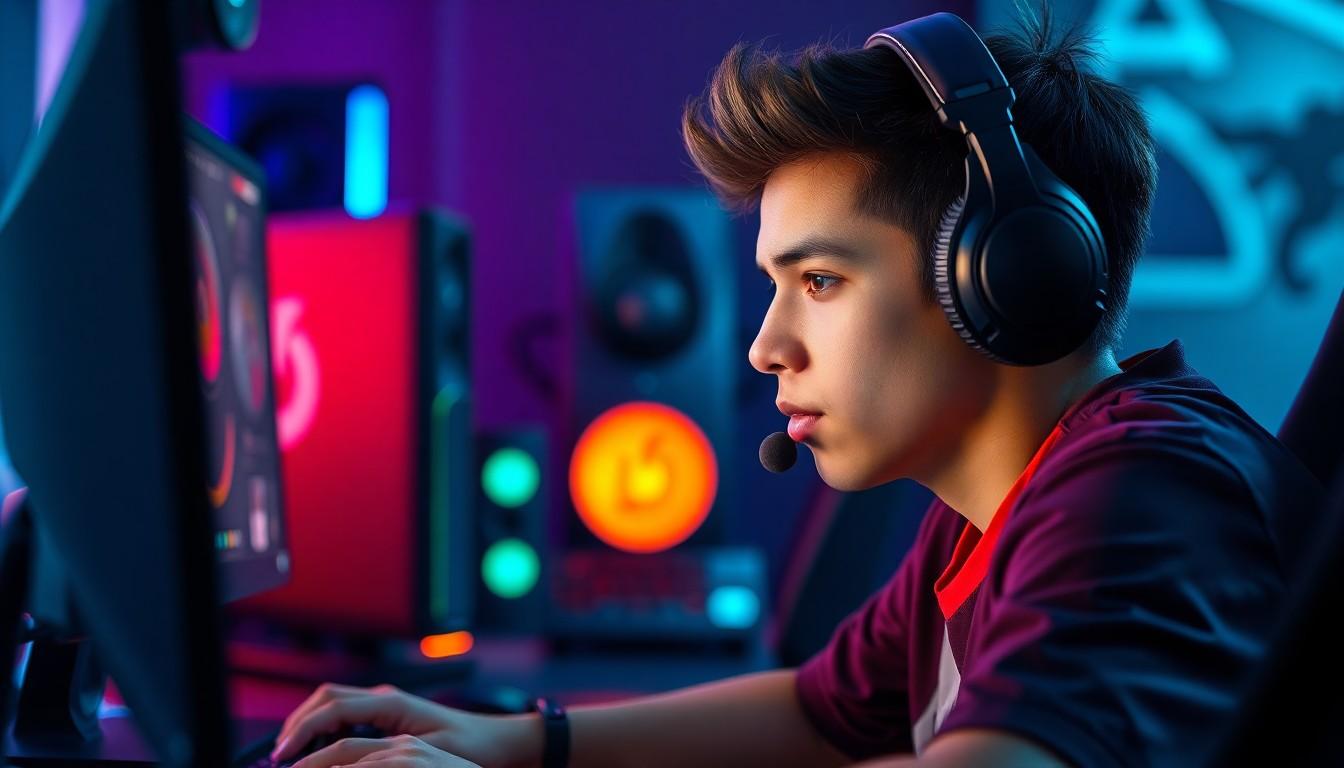Phone:
(701)814-6992
Physical address:
6296 Donnelly Plaza
Ratkeville, Bahamas.

In the fast-paced world of esports, Pro gaming teams recruiting are on the hunt for their next superstar. It’s not just about skill; it’s a quest for that elusive blend of talent, teamwork, and a dash of charisma. Picture this: a player who can not only carry the team but also keep the banter rolling during intense matches. That’s the dream recruit!
Pro gaming teams navigate a highly competitive atmosphere while recruiting new talent. They focus on identifying players who demonstrate not only exceptional gaming skills but also strong interpersonal abilities. Candidates often undergo rigorous scouting processes that evaluate their performance across multiple platforms and game titles.
Team dynamics hold significant importance, making teamwork a critical consideration during recruitment. Recruiters assess how well a player communicates and collaborates with others in high-pressure situations. Additionally, charisma and personality play pivotal roles; potential recruits often need to engage fans and represent their teams positively.
Market trends influence recruiting strategies, as popular games and evolving esports scenes shape the talent pool. For instance, teams might target players from successful tournaments to secure skilled competitors.
budgets continue to swell, offering players more incentives. Financial backing enables teams to invest in promising individuals, resulting in intensified competition for skilled roles.
Moreover, the rise of online scouting tools and analytics aids in identifying promising talent globally. Advanced metrics track gameplay patterns, allowing teams to pinpoint exceptional players who otherwise might remain unnoticed. This technological support offers a broader reach in discovering talent beyond traditional metrics.
Ultimately, pro gaming teams recruiting well-rounded individuals capable of thriving under pressure, collaborating effectively, and engaging with fans. Maintaining a balance between gameplay proficiency and team synergy remains essential for long-term success.

Pro gaming teams assess various factors when recruiting new players. Both individual skills and team dynamics play crucial roles in this process.
Skill level remains a primary factor in recruitment. Teams evaluate players based on their past performances in competitive events. Metrics such as kill/death ratios and win rates provide objective data that highlights an individual’s capabilities. High-level gameplay becomes essential, particularly in tournaments where stakes are significant. Candidates don’t just need mechanics; they must adapt quickly to evolving game strategies. Engaging in practice matches showcases a player’s prowess and potential contribution to team victories. Many teams prefer recruits who display consistency under pressure, ensuring they can perform when it matters.
Team chemistry influences recruitment decisions heavily. Recruiters often observe interactions between players during scrims and tournaments. Communication styles and collaborative efforts reveal how well candidates will integrate into existing squads. Strong interpersonal skills lead to better synergy, especially in high-stress scenarios. Organizations value players who contribute positively to team morale and dynamics. Coaches and managers consider how new recruits engage with fans and the broader community, as this impacts overall brand representation. Cohesion among team members directly correlates to sustained success in competitive environments.
Pro gaming teams recruiting employ various strategies to identify and recruit top talent. They combine traditional methods with innovative approaches to ensure they find players who excel in both skill and personality.
Scouting occurs primarily in competitions, where teams observe performance metrics like kill/death ratios and win rates. High-stakes tournaments serve as prime hunting grounds for identifying skilled players. Observations during these events provide insight into a player’s ability to perform under pressure. Teams often look for standout performances that indicate not just individual skill but also teamwork capabilities. Assessing candidate interactions during matches helps determine potential fit within existing rosters. Combining competitive results with interpersonal observations leads to better recruitment outcomes.
Social media platforms represent a key tool for recruitment in esports. Teams frequently monitor players’ online presence to gauge personality and engagement levels. Popular platforms allow candidates to showcase their skills through gameplay videos and streams. Engaging content helps teams find individuals who connect well with fans. Analyzing interactions also reveals how candidates handle public scrutiny. Positive online behavior often correlates with team morale and public representation. Overall, utilizing social media expands opportunities for discovering talent beyond traditional scouting methods.
Contract negotiations play a crucial role in the recruitment of esports players. Each agreement establishes terms that outline salaries, performance bonuses, and sponsorship deals. Players and teams engage in these negotiations to ensure mutual benefits. Clarity is essential when discussing expectations and responsibilities.
Pro gaming teams often analyze players’ past contracts to determine industry standards. Understanding what top performers earn helps teams remain competitive. Flexibility during negotiations can lead to better terms, especially for promising talent. Teams must balance their budget constraints against attracting elite players.
Salary structures usually depend on a player’s experience and achievements. In many cases, bonuses tied to tournament performance can significantly increase earnings. Non-monetary benefits also enhance a contract’s value, including training resources and access to professional coaches. Ensuring that terms align with a player’s goals fosters a healthier relationship.
Communication remains key throughout the negotiation process. Teams should maintain transparency to build trust with recruits. Open discussions about career aspirations and personal brand goals contribute to successful agreements. When both sides feel heard, it creates a cooperative atmosphere.
Ultimately, effective contract negotiations influence a team’s long-term success. Retaining skilled players depends on how well teams structure their agreements. Investing time in thoughtful discussions ensures players feel valued and understood, setting the foundation for fruitful partnerships in the competitive gaming landscape.
Adapting to the evolving landscape of esports is crucial for professional gaming teams. Emerging technologies increasingly shape recruitment processes, offering innovative tools for identifying talent. Artificial intelligence, for example, analyzes player performance data, helping teams make more informed decisions.
Increased emphasis on mental health also influences recruiting strategies. Organizations prioritize candidates with strong psychological resilience, recognizing that mental fortitude impacts performance under pressure. Candidates showcasing emotional intelligence are more attractive as team dynamics become vital to achieving success.
Social media presence continues to play a significant role in recruitment. Platforms like Twitch and YouTube allow players to demonstrate their skills while interacting with fans and potential teams. Engaging personalities often stand out, making candidates with strong followings more desirable.
Diversity and inclusion initiatives are gaining traction within the esports community. Teams actively seek players from various backgrounds to foster creativity and innovation. By valuing diverse perspectives, organizations enhance overall team performance and appeal to a broader audience.
Remote scouting is becoming a standard practice in talent acquisition. Teams monitor online tournaments and streams, expanding their reach beyond traditional venues. Such strategies identify skilled players from different regions, adjusting the recruitment landscape dramatically.
Collaboration with gaming academies and programs is also on the rise. Teams partner with training institutions, creating pathways for aspiring pros to enter the industry. Nurturing talent from a young age fosters loyalty and may secure the next generation of elite players.
Lastly, adaptation to new gameplay mechanics pushes teams to recruit adaptable players. Evolving game updates demand quick learners and strategic thinkers. As the gaming meta shifts, teams prioritize candidates who can pivot alongside changes, ensuring long-term competitiveness in esports.
The landscape of pro gaming team recruiting is rapidly evolving. As teams strive for excellence, they must balance skill with personality and teamwork. The emphasis on strong interpersonal abilities and team chemistry is more critical than ever.
With innovative scouting methods and the rise of social media, teams can discover talent beyond traditional means. Additionally, contract negotiations play a pivotal role in retaining top players, ensuring they feel valued and understood.
As esports continues to grow, embracing diversity and prioritizing mental health will shape the future of recruitment. The focus on adaptability and emerging technologies will keep teams competitive in this dynamic environment.